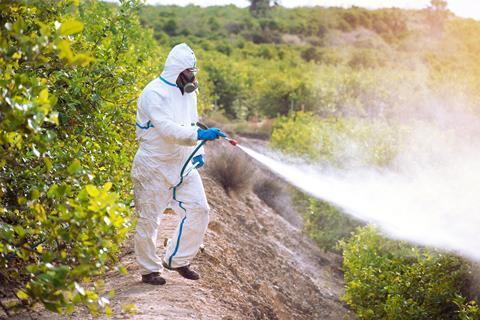Fepex welcomes move, saying the controversial legislation threatened food security within the bloc

The European Parliament has rejected a Commission proposal to cut the use of chemical pesticides by a large majority after a backlash from farmers.
In June 2022, the Commission proposed a regulation to reduce the use and risks of plant protection products (PPPs) by 50 per cent at EU level by 2030 as part of the Green Deal climate law to cut greenhouse gas emissions within the EU and improve biodiversity and ecosystems.
On Wednesday, 299 MEPs voted to reject the Commission’s proposal, with 207 supporting the proposal and 121 abstaining. Many Green and socialist MEPs said they had voted against the proposals because of the weakened provisions. In a statement, the parliament’s Green group said: “in the end, the text was not good enough for anyone to support it”.
Spanish grower-exporter federation Fepex welcome the result, claiming it showed that “realism has prevailed and that production and food security are beginning to be taken into account and become priorities”.
Fepex said the proposed regulation constituted a very serious threat to production in the EU, “because it represented a strong reduction in the basic tools that producers have to deal with pests and plant diseases, without effective alternatives, which would also impact food security, understood as all people having access to a sufficient supply of healthy foods at affordable prices”.
The European Council now has to decide on its own position on the proposal to determine whether it is definitively rejected or returns to Parliament for a second reading.



